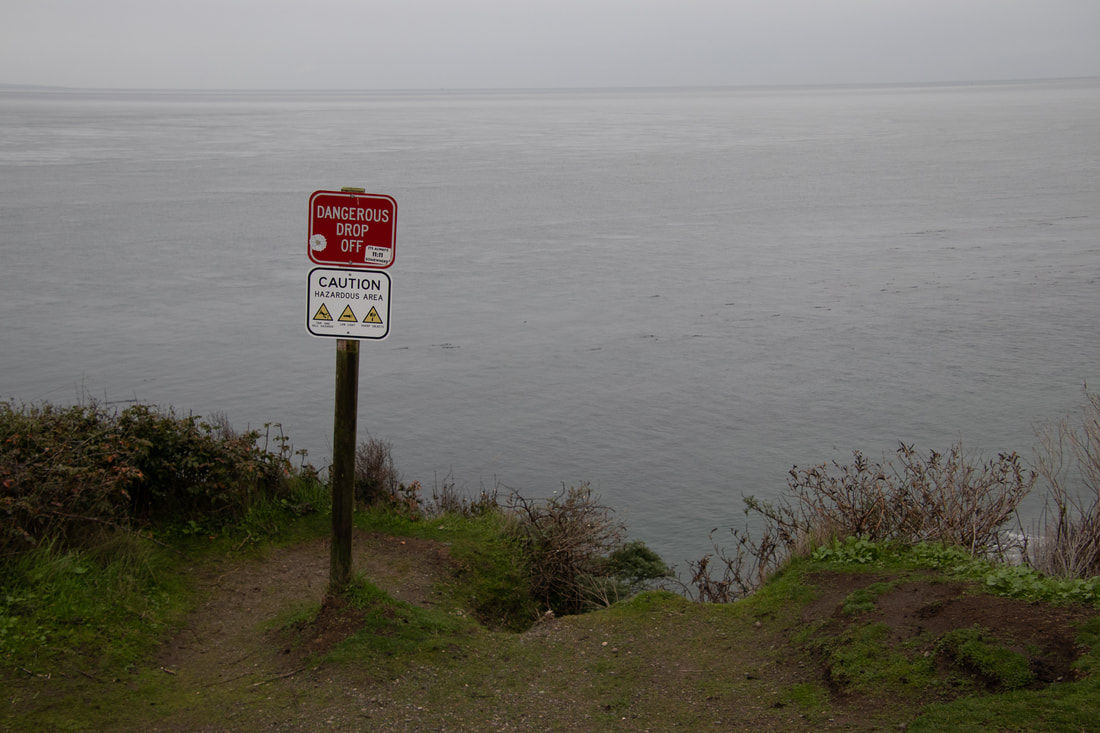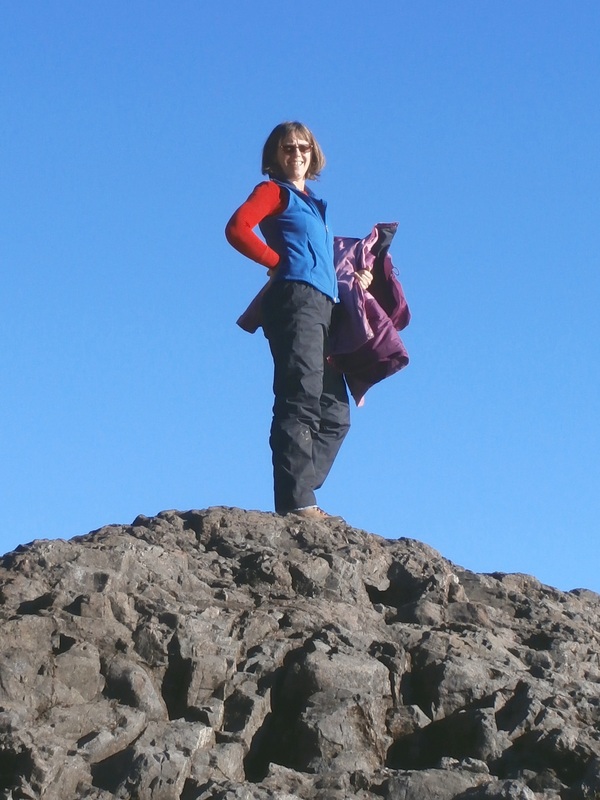|
A reflection on Luke 21:25-36 for the community of St. David of Wales Episcopal Church, Shelton, WA. First Sunday of Advent, November 28, 2021. Everybody is ready for Christmas. The Thanksgiving leftovers that crowd our refrigerators are almost all gone. Radio stations are playing Christmas songs 24 hours a day. Stores have been stocked with holiday décor and gifts since Halloween. Black Friday sales flooded our email inboxes this weekend. Neighbors are stringing up lights and inflating super-sized Santas. Everybody is ready to celebrate, except us. We who worship Christ and follow the church calendar have flipped the page to the first day of a new year that begins not with decorations, celebratory champagne, and countdowns, but with weeks of waiting. And what a strange sort of waiting it is. We wait for what was promised and what has already occurred. We wait for a sign that God is with us. We wait for God to break into human history with the birth of Jesus. And we wait for what was promised but has yet to be fulfilled. We wait for the final redemption of humanity and all of creation. We wait for peace and justice to prevail throughout the earth. We wait for the Son of Man to come again in power and glory. In today’s gospel, Jesus said, “There will be signs in the sun, the moon, and the stars, and on the earth distress among nations confused by the roaring of the sea and the waves. People will faint from fear and foreboding of what is coming upon the world, for the powers of the heavens will be shaken. Then they will see ‘the Son of Man coming in a cloud’ with power and great glory. Now when these things begin to take place, stand up and raise your heads, because your redemption is drawing near.”
Jesus was speaking about the turmoil that beset the church and the people at that time. And the Temple in Jerusalem, the center of the Jewish worship and authority, was destroyed twenty years later never to be rebuilt. Luke wrote his gospel shortly after the Temple’s destruction to people still reeling from that loss. There have been so many dark periods of human history since then, times when it seemed as though the end must surely be at hand. And the signs are still all around us today. As New Testament professor Audrey West says in her commentary on this scripture written for Luther Seminary: Jesus speaks in the language of apocalyptic, or revelation. Vivid images—the heavens being shaken, the Son of Humanity appearing in the clouds—depend on the metaphors’ capacity to express a community’s trauma while also offering powerful hope in the midst of those experiences. When the present reality includes wars and political tumult (distress among nations), climate catastrophe (signs in the sun, the moon, and the stars), global pandemic (breathless from fear and foreboding), unemployment, hate crimes, racist ideologies, death-dealing illness, displacement by terror, or anything else that traps people in fear or despair (weighs down hearts), it is then that we look for the coming of the Son of Humanity, the Christ whose promised future makes all the difference for today.” Growing up outside a faith tradition in a family that was fractured by divorce multiple times, I was terrified of being abandoned. Both my stepparents disappeared from my life without saying goodbye, and when I encountered scripture passages like those in today’s Gospel on my own before I found a church, it seemed as though a lasting relationship with God was impossible for someone like me and that could disappear from my life without warning. Even when I became a Christian, it was the mid-1980s at the height of the Cold War, and I lived in fear that nuclear war and the end times were a moment away. I worried that I would never be vigilant enough to be saved, after all I had to sleep. I would never be clever enough to interpret the signs. Was the USSR that President Reagan called “The Evil Empire” the Antichrist or just our biggest nuclear threat? And I was sure I would fail to recognize The Messiah at the second coming, convinced that I would fall for a false prophet instead and be one of those forever separated from Jesus. From the Left Behind books, to The Da Vinci Code, to the cults that have set dates for the destruction of the earth and Jesus’ second coming, it’s clear I’m not the only who worried about how and when redemption would come. But time has changed me. I’ve been in a relationship with my husband for 40 years, and no longer worry about abrupt and unexpected endings to marriage. I’ve been a Christ follower for 35 years, which isn’t very long compared to many of you, but it’s been long enough to help me relax into my faith, and to find hope, rather than fear in waiting. When I was training to become a United Methodist lay pastor in California in the late 1990s, my Bible teacher said something about God’s salvation never being narrow. That God’s invitation is wide open and accessible to anyone who will say yes. He said that believing salvation is available only to those who correctly decipher Biblical codes, or believe a specific selection of Bible verses, is bad doctrine, and that those who preach bad doctrine are false prophets who misrepresent the true nature of God and the Good News offered in Christ. I also learned the distinction between our human concept of time, Kronos, and God’s time, Kairos. Markey Makridakis, in her book, Creating Time, explains it like this: Kronos (from which we take our word chronology) is sequential time. Kronos is the time of clocks and calendars; it can be quantified and measured. Kronos is linear, moving inexorably out of the determinate past toward the determined future, and has no freedom. Kairos is numinous time. Kairos…cannot be controlled or possessed. Kairos is circular, dancing back and forth, here and there, without beginning or ending and knows no boundaries. In our personal lives, we get a glimpse of Kairos and the unbound nature of time when memories and dreams transport us back in time to people and places that no longer exist in the physical world but are alive in our imaginations. The idea and experience of Kairos helps us understand our Advent experience, waiting for the birth of Jesus, a past, present, and future indwelling of God with us. But Kairos time is harder to apply to the external world we live in, bound by chronology where we see worrisome signs of destruction and ending all around us. The season of Advent begins with the opportunity to ask ourselves how we deal with fear and anxiety, how we cope with tragedy and injustice. Do we hide, ignore, or deny? Jesus warns us to "Be on guard so that your hearts are not weighed down with dissipation and drunkenness and the worries of this life.” Weighed down by the worries of this life, I don’t indulge in drunkenness, but I am extremely skilled in dissipation, which can be defined as wasting by misuse, mental distraction, amusement, and diversion. When I’m overwhelmed by world and family events, I binge-watch: Fixer-Upper, The Great British Baking Show, Top Chef, America’s Got Talent. It’s a waste of time, but I’m here to say that God can redeem even our dissipated time. The week before last, I was brought low by the common cold. Too exhausted to go to work, or to work at home I binged Dancing with the Stars. In one of the last episodes of this season, the TV personality Amanda Kloots and her partner danced to Live Your Life, a song by Nick Cordero, Amanda’s late husband who died in 2020 after a drawn-out battle against COVID. The performance was haunting and beautiful, a journey through love, loss, and grief and ultimately to hope shared with millions of viewers. A moment of transcendence through a medium we often disdain. How do we bear loss, grief, anxiety, and fear? How do we cope with tragedy and injustice, both personal and global? How do we wait and wait for God’s righting of the world that seems so long in coming? As co-creators with God, we tell our stories in art, music, and words, transforming pain into healing, bringing the light of hope to the dark of despair. As a community bound by faith, we engage in worship and prayer, in stewardship and fellowship as testimony to our belief in the redeeming power of Christ and the promise of God’s salvation. Today’s gospel passage closes with Jesus’ exhortation: “Be alert at all times, praying that you may have the strength to escape all these things that will take place, and to stand before the Son of Man.” But there is no escape from being human in this world. There is no escape from illness, loss, and death. No escape from hurricanes, fire, or floods. No escape from the ravages of war, inflation, and unemployment. No escape from the consequences of the decisions we’ve made as individuals and as a species that impact all creatures on earth, and the land, water, and air upon which our lives depend. There is an escape from believing that what we see is all there is. And there is an escape from believing that we have the power to control others—even when we want to use that power to help. And there is an escape from believing the political, economic, and religious powers of the world are the ultimate powers and arbiters of our faith. Our escape lies in faith. Our escape lies in hope. Our escape lies in prayer—God’s will be done on earth as in heaven. Our escape lies in staying alert, in noticing, seeing, dreaming, speaking, and empowering the coming and current reign of Christ. Our escape lies in standing before the Son of Man, who has come, who is here, who will come again, whose existence is God’s bequest to us. Our escape lies in receiving the gift Christmas will bring us: Radical never-ending, ever-present love.
0 Comments
Your comment will be posted after it is approved.
Leave a Reply. |
I began blogging about "This or Something Better" in 2011 when my husband and I were discerning what came next in our lives, which turned out to be relocating to Puget Sound from our Native California. My older posts can be found here.
Categories
All
Archives
September 2023
Newsletters |

